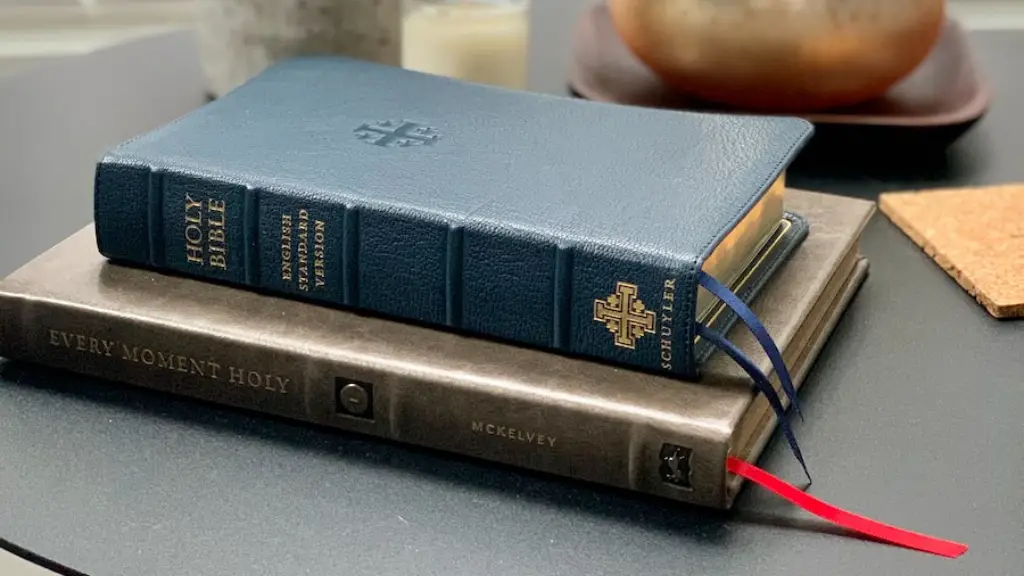Slavery is a much-debated issue even in current times, with proponents and opponents stemming from multiple sides of a divide. But modern slavery has been discussed for centuries, with religion at its centre. Of all faiths, none is as polarizing in regards to the matter as Christianity, and the debate on whether it condones the practice or not, is one that has gone on for decades.
The key document behind the modern day denomination of Christianity is the Bible, the holy scripture at the forefront of Christian teachings and beliefs. And, according to biblical scholars, The Bible is laced with stories of slavery, both as a law and a practise, with scholars who specialise in Biblical histories and scriptures, claiming it to be an acceptable, or even necessary, practise.
The Old Testament is home to various scripts praising and condoning the institution of slavery, with the most famous of them being Exodus 21:2-6, where the bible explicitly states that owning servants or slaves were permissible, and even glorified. Moreover, in Deuteronomy 20:10-15, it is made clear that war captives must be treated as slaves and the Israelites were free to own them in the eyes of God and religion.
The New Testament too, is not exempt from verses that appear to be suggesting the acceptance of slavery, with the notorious Colossians 3:22-4:1 and Ephesians 6:5-9 in the forefront of commentators’ minds, with the apparent allowance and certain commandments to obedience in each.
However, many religious and Christian scholars have argued against the points made by proponents of slavery condoning, in the Bible and its teachings, stating that in fact, The Bible promotes situations where both slaves and their owners had to abide and respect respective codes of conduct and rights. Pre-emancipation theologian Robert William Dale and current theologians such as Jennifer Glancy have pointed out that stories that have been interpreted as condoning slavery, have actually been about the consequences of the abuse of slaves and other oppressed people, and not about the practice of slavery itself. Moreover, The Gospel of Jesus Christ is, and has always been, about love and acceptance for all, with just and fair treatment for all in Jesus’ teachings.
The Bible has never been a dry book of laws, but more of a vivid journey through God, Jesus and mankind’s long relationship, filled with anecdotes, stories and discrepancies of varying severity, some of which could be interpreted as condoning slavery, but the context of which in hindsight, might be of a different tone. Spectators of the debate decided upon two other decisive points – those of redemption, and of love and acceptance. Redemption in the sense that The Bible, regardless of any passage or message of condoning slavery, contained stories of freedom and emancipation, between which stand firm the message of not just acceptance and love, of all groups, regardless of race, gender or status, but also of actively fighting for and standing up for the rights of all people, including the enslaved.
Context of the Bible Acknowledged
When analysing The Bible, one must remember to look more closely and consider more accurately, the context in which the words are written and told. That there is more to the stories than simply indicating a condoning of slavery, and depictions ofservitude, bondage and slavery occurring in The Bible, have more to do with the context in which the stories were set, with the understanding and acceptance of slavery during the time being much different than our current standards.It is something that the modern eye might take as an outright endorsement of slavery, but when the context of the period and the culture of the times were taken into account, it becomes clear that such stories are more around lessons of remembrance and to inculcate values of dignifying humanity, with slavery serving as a backdrop to the teachings.
Strict Legal Limitations
The Bible presents strict boundaries and legal limitations with regards to how slaves were treated, with clear demands of kind treatment, compensation and even eventual freedom, depending on the circumstances. Deuteronomy 15:12-18 clearly states that slaves have to be freed after 6 years and for the people living in Ancient times, this would be a rather astonishing concept indeed, even more so considering that slavery was an accepted practise of the day. Even the Code of Hammurabi from the middle of the 2nd millennium BC, which was almost four centuries before the earliest parts of The Bible, stated that slaves were to be used as unpaid labourers and only freed after at-least three years.
Modern Day Slavery
Modern-day commentators of the arguments on whether Christianity condones slavery often draw correlations between the societies with slaves present, in the times of The Bible, to the slavery of today. And even though the circumstances are hugely different, the basis of the argument is still the same – what would Jesus do? How would he interact with those people? And, as common understanding implies, it varies greatly with the ideas and views of slaveholders today.
The Christian response to modern day slavery is widely split between those who accuse The Bible of condoning slavery, and those who dispute the opposite – claiming that slavery and servitude, though very much part of the Bible, was never a practise of Jesus and his words.
It would be fair to say that there is no definitive answer on whether The Bible condone Slavery or not, with a dichotomy of opinions stemming from both believers and non-believers. Differing interpretations of law and scripture have resulted in differing opinions on a subject which, at its core, still remains a moral issue.
Religious and Secular Context
Religion, though asked to provide answers from a moral standpoint, is still just a part of the picture, with secular theories and general understandings stamped all over the debate. In the Middle Ages, economic stability and advancement of countries dictated servitude and the need for manual labour, and therefore, the discussion was very much present inside and outside the realms of the Church. It can be argued that the contextual opinions of the outside world affected the discussions of such topics within the Church and that, though the notion of love for thy neighbour was so drastically argued for, it very much clashed with the ideological and economical structures of the day.
In summary, the stance of The Bible on the matter of slavery is varied and, depending on theverse or passage being taken into account, can very easily be argued for or against. The morality of itstill, however, is in the eyes of the beholder and depends on how one perceives issues,and whichever other form of sources or scripts are taken into account. Therefore, the finaloutcome of the discussion is constantly up in the air and forever in debate.
Alternatives to Slavery
With all of the dilemmas we now face due to religion and its views on the matter of slavery, one only wonders if stronger and more resounding calls for emancipation had been hung from the windowpanes of the churches centuries ago, when slavery had been a much more pronounced issue, would we now have the modern, unethical and illegal form of slavery that is currently so prominent?
Moreover, it is thought provoking to think of the alternatives that could’ve been explored in the centuries proceeding that still permitted economic stability, without the suffering and injustices of enforced servitude. Such solutions, where the oppressed are treated with respect and protection is what can and needs to be strived for, if we wish to reach true moral leniency as well as material success.
The Modern Perspective
The modern-day perspective on slavery has strongly developed in the past few decades, with morality being placed at the heart of the discussion; this view has been much upheld within the churches of today, and while sex trafficking, debt bondage and other forms of equal suffering and abuse, continue to rear their ugly heads, so too does awareness of their presence and fight against them, uniting people of all faiths, each with the same goal in their minds – to end oppression.
Today, different solutions have been explored in order to make a lasting impact, with a focus on freeing, rehabilitating and creating a prosperous and safe future for those who have been most oppressed by systems – those being enslaved. Both religious and non-religious organisations, as well as experts from various backgrounds and angles are collaborating to look into better solutions to deal with the present-day abuses currently in power.
Conclusion
The discussion of whether The Bible condones slavery or not, is an evergreen one, one that has been explored from multiple angles and from a variety of points of view, each offering its own merits. In the end however, whether or not The Bible condones slavery is not a discussion about the bible itself, but one about morality, about acceptance and love for all, and about standing up for those whose rights and wellbeing havebeen denied for so long. If morality is taken to be the most fundamental in this debate, then a greater understanding of the stories and their contexts can be reached, and decisions more educatedly made regarding the matter.




